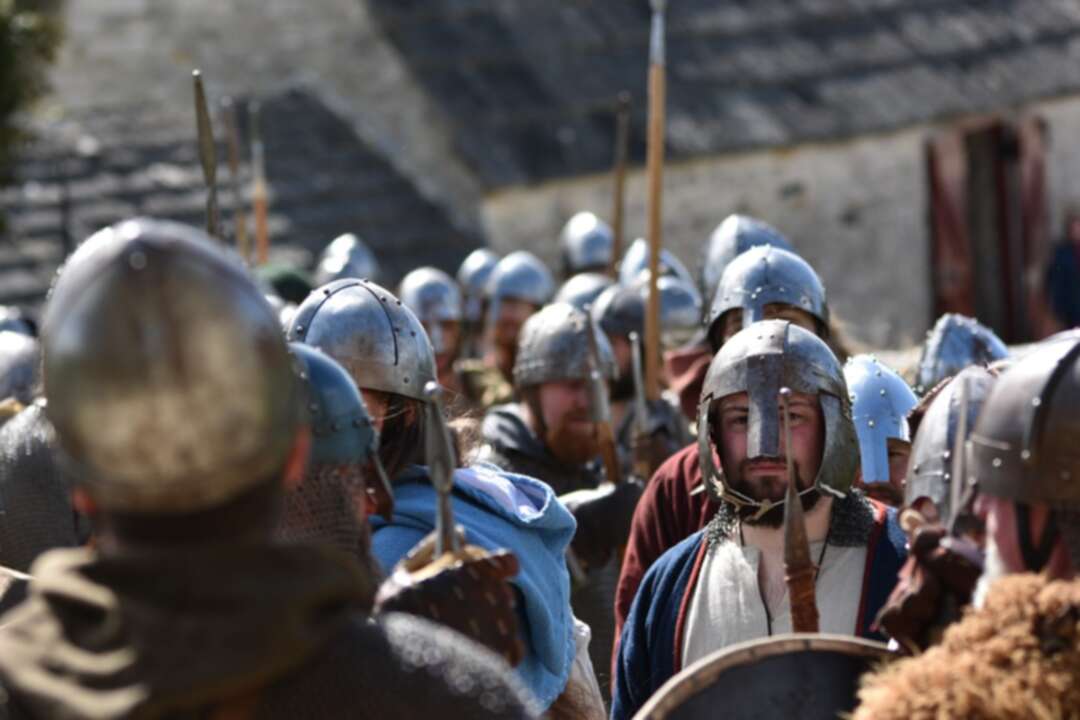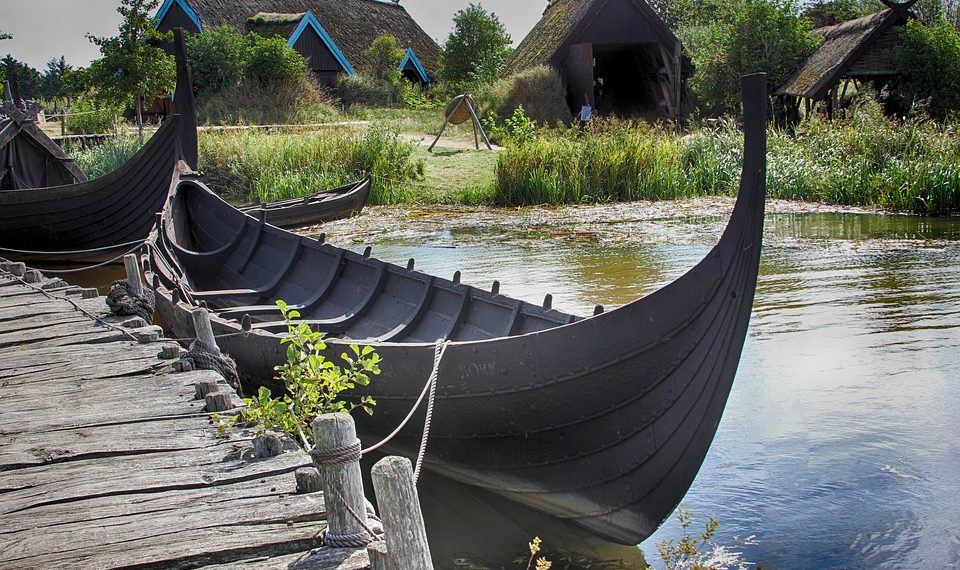-
Vikings came centuries before Christopher Columbus and settled in North America

A study says that Vikings had a settlement in North America exactly one thousand years ago, centuries before Christopher Columbus arrived in the Americas.
According to scientists, a new dating technique analysing tree rings has provided evidence that Vikings occupied a site in Newfoundland, Canada, in 1021AD.
The BBC reported, it has long been known that Europeans reached the Americas before Columbus's arrival in the New World in 1492.
But this is the first time researchers have suggested an exact date.
Writing in the journal Nature, scientists said they had analysed the tree rings of three pieces of wood cut for the Norse settlement at L'Anse aux Meadows.
They said that using an atmospheric radiocarbon signal produced by a dated solar storm as a reference, they were able to pin the "exact felling year of the tree" to 1021.

Such a solar storm - a huge blast of radiation from the Sun that hits Earth - was known to have taken place in the year 992AD, the scientists said. This enabled them to determine a more accurate date than previous estimates for the camp of about 1000AD.
Read more: One of world’s last two northern white rhinos retired from breeding programme
"The association of these pieces with the Norse is based on detailed research previously conducted by Parks Canada," the study says, adding that there was clear evidence the sampled wood had been modified by metal tools.
It adds that the L'Anse aux Meadows camp was a base from which other locations, including regions further south, were explored.
The authors say the discovery represents a definitive point for future research into the initial consequences of transatlantic activity, such as the transfer of knowledge and the potential exchange of genetic information and pathologies.
Dr Colleen Batey, a Viking specialist associated with the Institute for Northern Studies in Scotland, says the study does not necessarily suggest Vikings were not in the area in 1000AD.
She says: "It suggests that the short-lived settlement was active in about 1021 when wood was being worked at the site, probably related to either building or ship repair."
Read more: Queen Elizabeth returns to Winsdor Castle after hospital stay
"As an archaeologist, I might interpret this as one stage of the occupation activity, not necessarily the first or indeed the last."
L'Anse aux Meadows, a Unesco world heritage site on the northernmost tip of the island of Newfoundland, is the first and only known site established by Vikings in North America and the earliest evidence of European settlement in the New World.
Radiocarbon dating is a technique that measures residual concentrations of a radioactive isotope of carbon (carbon-14) present in an object.
Carbon-14 decays over time and measuring how much is left tells you the age of a sample.
Source: BBC
You May Also Like
Popular Posts
Caricature
BENEFIT Sponsors BuildHer...
- April 23, 2025
BENEFIT, the Kingdom’s innovator and leading company in Fintech and electronic financial transactions service, has sponsored the BuildHer CityHack 2025 Hackathon, a two-day event spearheaded by the College of Engineering and Technology at the Royal University for Women (RUW).
Aimed at secondary school students, the event brought together a distinguished group of academic professionals and technology experts to mentor and inspire young participants.
More than 100 high school students from across the Kingdom of Bahrain took part in the hackathon, which featured an intensive programme of training workshops and hands-on sessions. These activities were tailored to enhance participants’ critical thinking, collaborative problem-solving, and team-building capabilities, while also encouraging the development of practical and sustainable solutions to contemporary challenges using modern technological tools.
BENEFIT’s Chief Executive Mr. Abdulwahed AlJanahi, commented: “Our support for this educational hackathon reflects our long-term strategic vision to nurture the talents of emerging national youth and empower the next generation of accomplished female leaders in technology. By fostering creativity and innovation, we aim to contribute meaningfully to Bahrain’s comprehensive development goals and align with the aspirations outlined in the Kingdom’s Vision 2030—an ambition in which BENEFIT plays a central role.”
Professor Riyadh Yousif Hamzah, President of the Royal University for Women, commented: “This initiative reflects our commitment to advancing women in STEM fields. We're cultivating a generation of creative, solution-driven female leaders who will drive national development. Our partnership with BENEFIT exemplifies the powerful synergy between academia and private sector in supporting educational innovation.”
Hanan Abdulla Hasan, Senior Manager, PR & Communication at BENEFIT, said: “We are honoured to collaborate with RUW in supporting this remarkable technology-focused event. It highlights our commitment to social responsibility, and our ongoing efforts to enhance the digital and innovation capabilities of young Bahraini women and foster their ability to harness technological tools in the service of a smarter, more sustainable future.”
For his part, Dr. Humam ElAgha, Acting Dean of the College of Engineering and Technology at the University, said: “BuildHer CityHack 2025 embodies our hands-on approach to education. By tackling real-world problems through creative thinking and sustainable solutions, we're preparing women to thrive in the knowledge economy – a cornerstone of the University's vision.”
opinion
Report
ads
Newsletter
Subscribe to our mailing list to get the new updates!






















